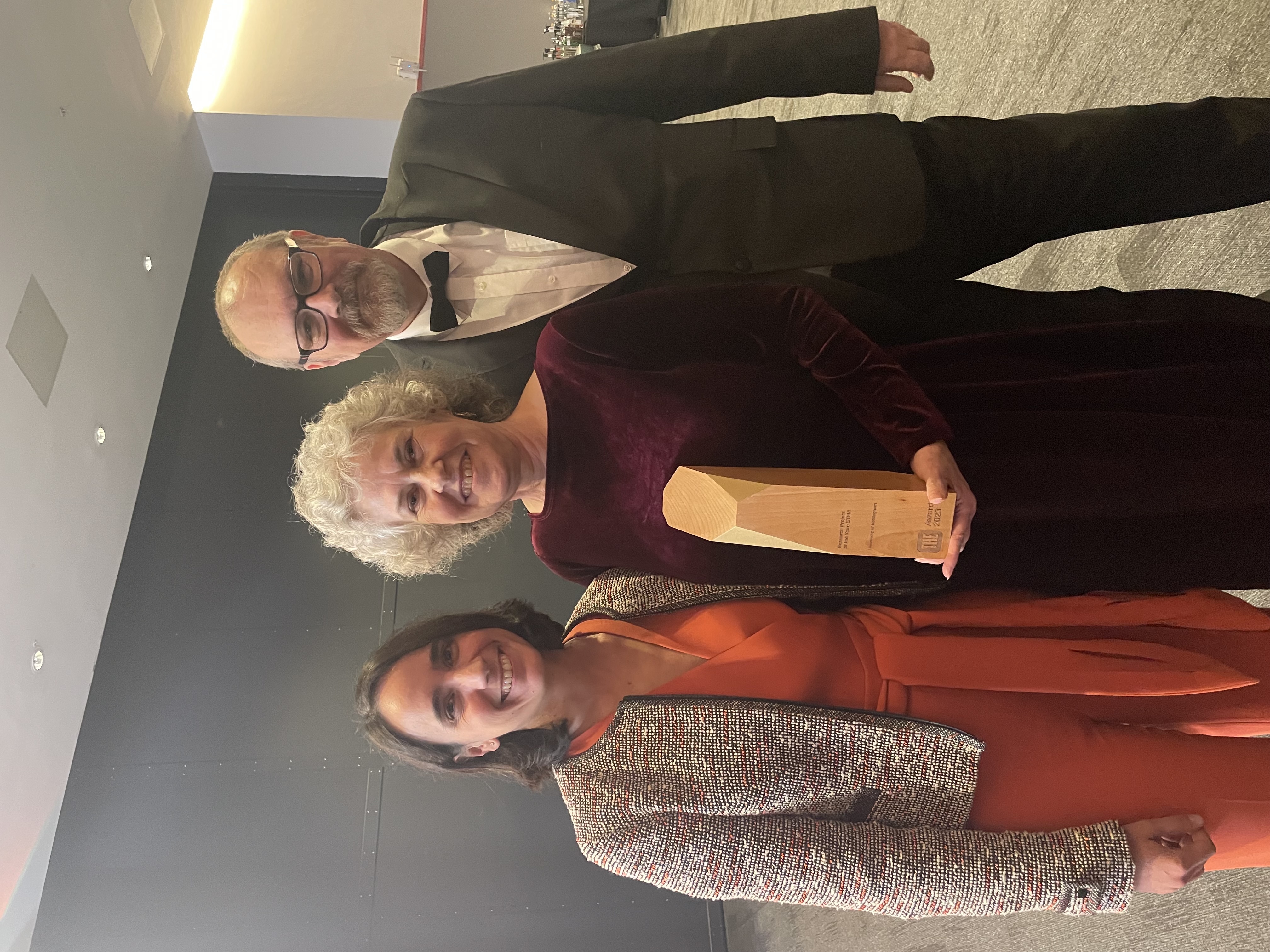The University of Nottingham scooped STEM Research Project of the Year at last night's Times Higher Education Awards for pioneering research to develop a new non-invasive treatment for Tourette's Syndrome (TS).
The awards recognise excellence in research, student support and outreach. They were presented at a ceremony hosted by Sandi Toksvig, which was held outside London for the first time at the ACC in Liverpool.
The 'Oscars of Higher Education' recognise UK universities and their staff for exceptional teaching, research, student support, entrepreneurship, collaborations and outreach, with more than 70 universities being shortlisted in 21 categories.
Professor Jackson from the University of Nottingham's School of Psychology led research that used repetitive trains of electrical stimulation to the median nerve (MNS) at the wrist to entrain rhythmic electrical brain activity - known as brain oscillations - associated with the suppression of movements.
The research showed that rhythmic MNS is sufficient to substantially reduce tic frequency and tic intensity, and remove the urge-to-tic, in individuals with TS. A prototype wrist device has been developed and proved in clinical trials earlier this year to reduce the amount and severity of tics for TS sufferers.

Professor Jackson said: "We're honoured to receive this award for our research, the whole team has worked incredibly hard to get the project where it is today. We know from our research just how life-changing the wrist device we have developed will be for people with Tourette's will be when it is available in a year or so."
The THE Awards judges commented: "Building on high-quality science, the Neupulse neuromodulation device has improved the lives of many living with Tourette's syndrome. It has received widespread media attention, is being effectively commercialised, and researchers have received thousands of enquiries from around the world."
The university's marketing team were also shortlisted for their innovative micro prospectus campaign winning in the Outstanding Marketing/Communications Team category.
This campaign revolutionised the traditional prospectus by merging print and digital journeys, prioritising sustainability, and meeting the needs of the Gen Z audience. Through collaborative ownership, strategic alignment, and ground-breaking practices, the team reshaped behaviour and perception both internally and externally. To drive change and reshape behaviour, the marketing communications strategy accelerated the shift to digital channels, taking advantage of the opportunities presented by the pandemic.






